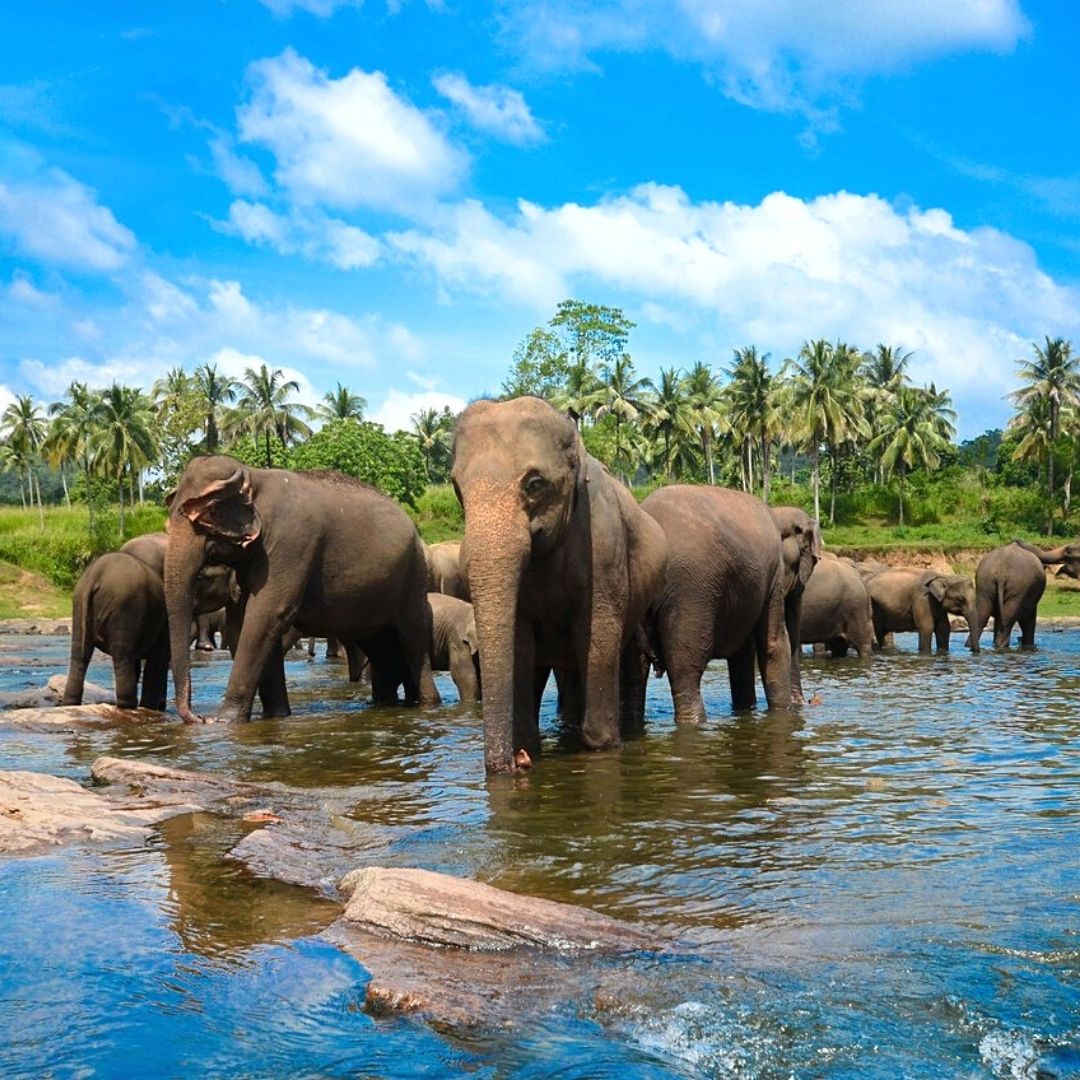If you’re looking for some heartwarming content for today, here it is! An elephant orphanage in Sri Lanka has reported the birth of twin calves; a rare occurrence that hasn’t happened in nearly 80 years.


Sri Lanka's Pinnawala Elephant Orphanage Reports Birth Of Twins!
In basically a once-in-a-century event, a 25-year-old elephant in Sri Lanka has given birth to twins. It occurred at Pinnawala Elephant Orphanage, which is Sri Lanka’s biggest elephant orphanage, nursery and captive breeding ground.
The mother, Surangi, gave birth to 2 male calves. They’re the first set of elephant twins to be born in captivity in Sri Lanka since 1941! Renuka, head of the Pinnawala Elephant Orphanage, said both calves and mum are doing fine.
Whilst we don’t support animals being used to make a profit (the site is also a tourist attraction), we do recognise Pinnawala’s work in raising orphaned and injured calves in a safe environment. It's home to more than 90 elephants.


First Captive-Born Elephant Twins In 80+ Years
Birthing twin elephant calves is extremely rare! In fact, elephants have a 1% chance of birthing twins, and most twin births have occurred in wild African elephants. Elephants can have around 4-5 babies in their lifetime, and the mothers can be pregnant for up to 22 months. Imagine that!
This was Surangi’s second time being pregnant; her first time was in 2009, where she gave birth to another male calf. The twins’ father, 17-year-old Pandu, is one of Pinnawala’s 90+ residents.
“The twins, weighing 66 kilos and 55 kilos, were born five hours apart. This birth is a first in the recorded history of elephants born in a zoo or safari park,” said elephant expert, Vasantha Nugegoda.


Elephants Are Sacred In Sri Lanka, But They Also Face Ill-Treatment
Sri Lanka’s relationship with elephants is complicated. On one hand, the biggest Buddhist ethnic group in Sri Lanka, the Sinhalese, regard elephants as quasi-sacred animals. Elephants used to carry relics of the Buddha in religious ceremonies and rituals. On the other hand, elephants were once the property of kings — and now, many rich Sri Lankans keep elephants as pets to show off their wealth.
During Sri Lanka’s colonial period (1505-1948), elephants were hunted for sport by the British gentry, resulting in the loss of more than 10,000 elephants. After 1948, the Sri Lankan government banned elephant captures. Now, it’s supposedly punishable by death — but it's rare. Anyone treating their own “pet” elephant poorly could face a 3 year prison sentence.


Sri Lankan Elephants Are Classed As Endangered
With a population ranging between 2,500–4,000, Sri Lanka’s elephants are classed as endangered. Since the turn of the 19th century, Sri Lanka’s elephant population has fallen by almost 65%. Expanding agricultural areas and new human settlements are mostly to blame for the decline of the Sri Lankan elephant, as well as human-elephant conflicts.
Did you know that elephants are extremely social creatures? In the wild, elephant herds typically comprise 12-20 individuals which are led by the oldest female. These elephants work together to raise their young. Some herds even contain ‘nursing units’ and ‘juvenile care units’, much like a daycare system!
These twin elephant calves are super adorable — we hope they grow up to be strong and healthy just like their mother, Surangi!
Keen for more updates in the world of wildlife conservation? Head to our Eco News category and check out the blogs below for more positive news.
Australia’s First Predator-Free Haven Will Protect The Endangered Northern Bettong
Giant Pandas Are Making A Comeback
Southern Right Whale Sightings Are Sparking Joy Around Australia



